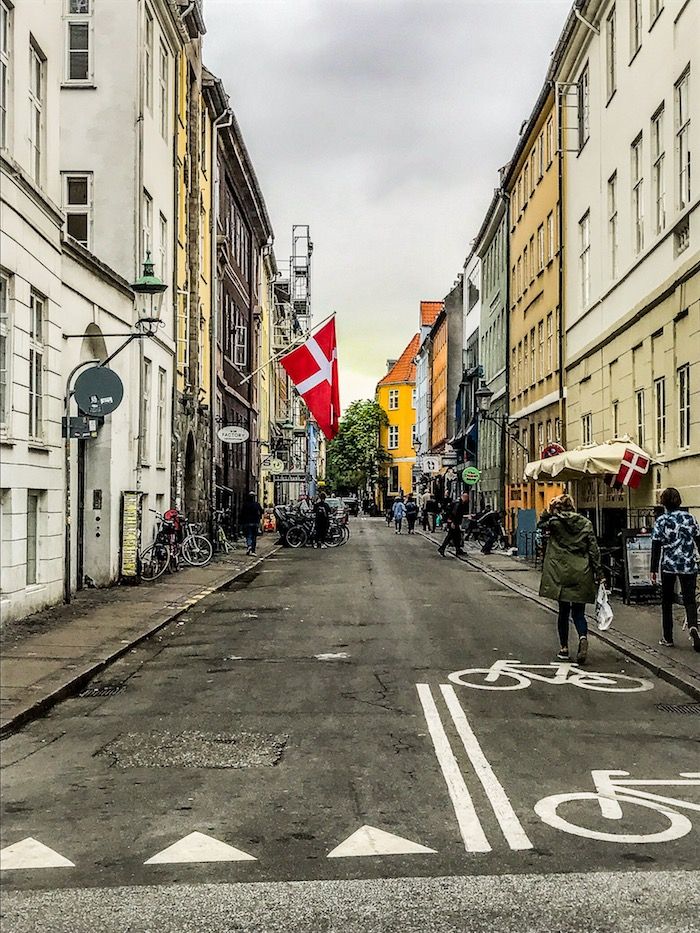When I agreed to teach a group of first-year Wake Forest students in Copenhagen for a semester, I knew it would be an adventure, but I didn’t realize then how much I would learn about myself.
January 6, 2018
I had a realization leaving JFK International Airport for a brief visit to Iceland on my way to Copenhagen. From the first draft of my teaching philosophy years ago, I’ve acknowledged the importance of reciprocal learning in the classroom. Students learn from me, yes. But I also learn from them, and they learn from one another. I am aware of how much more these students know about Copenhagen and Danish culture than I do. I will teach them about media studies, and they’ll teach me about Denmark and about our academic partner, DIS – Study Abroad in Scandinavia.
January 11
My first day in the office, which I share with nine colleagues, there are flowers on my desk, a streamer with paper Danish flags, a welcome note and a reserved table in DISh, the dining room for faculty and staff. My schedule includes lunch dates for the week to help me feel like I belong here, and the healthy dishes on the buffet are part of the institutional concern for well-being that extends to benefits such as discounted massage therapy. Surely, this approach arises from being part of a social welfare country, but the focus on work-life balance is palpable and useful for me because I sometimes have a tendency to become consumed by work.
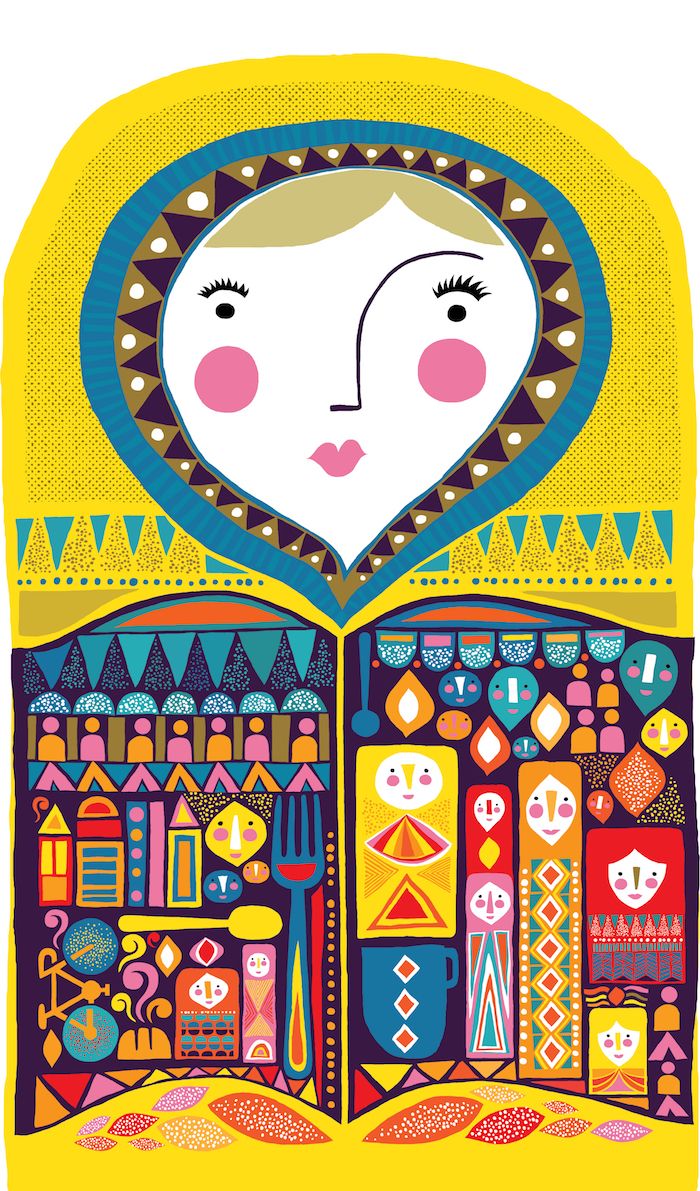
January 15
I can already tell the emphasis on community here is reinforced in practical ways with food, coffee supplied in the kitchens adjacent to each department, and in sharing ideas, answering questions and developing a collegiality that has been instantaneous since my arrival. I need to remember this back home (and make an extra effort to be welcoming) when new colleagues arrive at Wake Forest.
January 18
One thing is just like home: I am almost giddy with excitement about the first day of class! Although I helped select these students and have met them before, it’s still a beginning for us as a group when we enter the classroom.
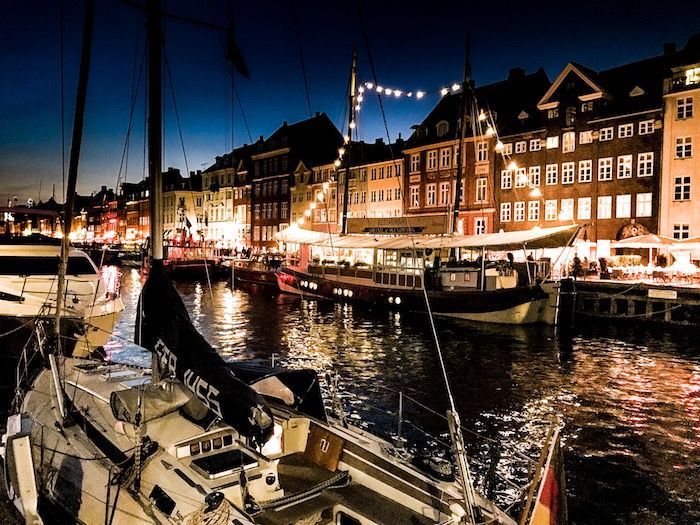
January 20
This is the first birthday I’ve spent apart from members of my family. My sister asked me during an online chat if I get lonely. Surprisingly, for someone as deeply rooted as I am to my various communities back home, the answer is no. For years I’ve thought about how nice it would be to have a little retreat in the woods, a cottage or cabin, and in some unexpected way, this beautiful apartment in the quiet and charming Christianshavn is giving me a version of that, a place to rest and reflect in a way that invites new insights and ideas.
January 25
Of course, it is not all solitude at the apartment. I had the first knitting lesson for interested students here today. I often repeat to students and friends what my friend Dwayne Godwin (the University’s dean of graduate programs in biomedical sciences) shared with me some time back: MRIs have proven that knitting has the same effect on the brain as meditating. He should know since he’s a neuroscientist. The students must have believed me because 11 of them said they wanted to learn to knit. It’s sometimes frustrating to be a beginning knitter, but the snacks I provided and assistance of two students with a bit of knitting experience got us through it!
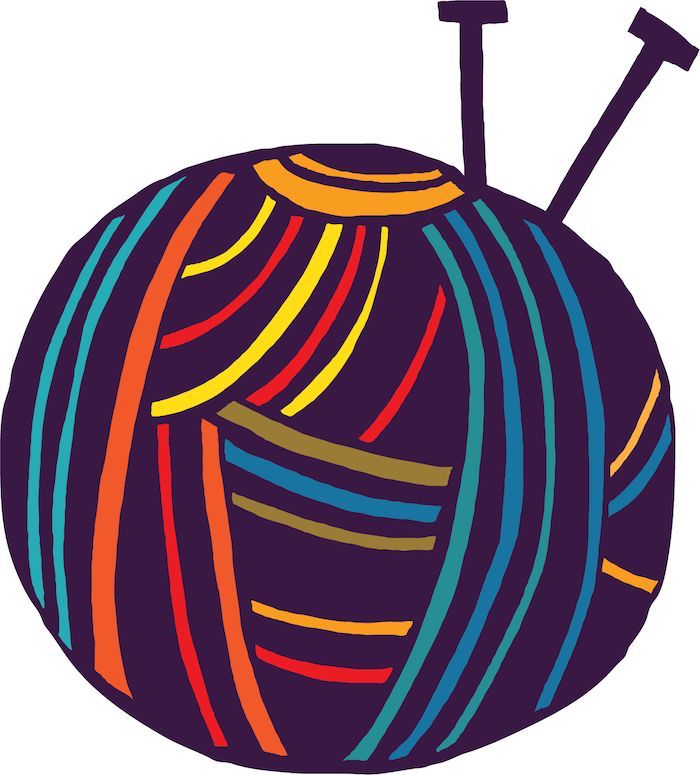
January 30
The time is going very quickly. I appreciate everything — even the sticker shock over food prices — because the experience is taking me outside of my comfort zone. I still have a half-hour commute to work, but here I’m walking instead of driving. I can’t read any of the signs, but I use a translation app or ask someone. I’m not familiar with some of the food, but I try it. Having a fresh perspective on things will make me better at everything I do — teaching, scholarship, creative work — and I’m grateful for the opportunity to be here and to stretch myself.
February 1
Last night, I went to the movies at the Vester Vov Vov, the oldest art-house cinema in Denmark. Walking home, I was thinking about how much I enjoy the cultural scene here. This morning, a bicycle whizzed past as I was a little more than halfway into my commute, and a colleague from another department called out, “Good morning!” I wouldn’t have known her except that we happened to sit at the same lunch table earlier in the week. I’m reminded over and over again that Copenhagen is at once an international city and a bit of a small town. We talk a lot at Wake Forest about overcoming “academic silos,” recognizing that doing so is necessary for us to be more interdisciplinary and innovative. Here, I think every day about how important it is to level silos of all types to form meaningful connections among all types of people.
Traveling binds people together. More than once on the trip, I thought about how much I’d like to be able to take study tours with students in my classes on the Reynolda Campus.
February 8
I’m at the end of a short study tour to Jutland. Suzanne da Cunha Bang and Catharina Rosendal from the Danish language and culture department organized our trip, which included a visit to an open prison. This challenged every preconception — acknowledged and previously unknown to me — I have about prisons and the people who live and work there, and our students had the same response. We also went to museums in Aarhus and Skagen, had a beer tasting and tour at a microbrewery in Aalborg, and visited a couple of natural sites. Skagen is surely one of the most peaceful and beautiful towns I’ve ever seen, and it was incredible to go the short distance from the town to stand on the beach at the northernmost point of Denmark to watch the waves of the North Sea collide with those of the Baltic Sea. Traveling binds people together. More than once on the trip, I thought about how much I’d like to be able to take study tours with students in my classes on the Reynolda Campus.
February 12
Advising is beginning in earnest in Copenhagen. So far, my talks with students have been about equal parts academic advising and life coaching. For some years now, I’ve realized who I am is more important than what I do. I’m not just referring to intrinsic worth as a human being but even to my work as a teacher. Media studies is important, perhaps essential, in an age when stories about what it means to be human and how we find our place and purpose in the world are conveyed so dominantly through moving images. Students tell me years later that things they learned in our classes continue to inform how they see the world. But, I think this influence comes from our interactions together more than lectures given, articles and books written, and films created.
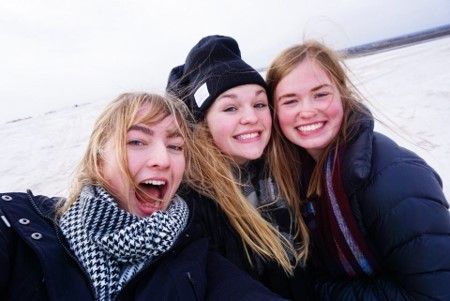
Global AWAKEnings students Emma Young, Anna Jones and Julia Morton.
February 25
I spent the weekend in a small town of about 300 people where one of my college friends lives with his wife and two children. Joel Southern (’82) grew up in Winston-Salem, and we took classes together with Julian Burroughs (’51, P ’80, ’83), both worked at WFDD radio station, and went on one of Harold Tedford’s (P ’83, ’85, ’90) famed holiday theatre trips to London over the break between semesters. After more than 20 years working as a journalist in Washington, D.C., Joel moved with his wife, Helene, to her native Denmark. Although we have visited once in recent years and keep up a little on social media, our talks conducted as he toured me around Central Denmark have been our longest conversations in many years. As is true with friends from my days as a student at Wake Forest and with some of the students I have taught since, Joel and I picked up right where we left off. Even though our lives have taken divergent paths, our shared sense of community connects us still.
February 26
You have not lived until you’ve walked to work in 22-degree weather (feels like 11) and watched a 5-year-old on a bicycle (mom close by with a baby in the seat behind her) navigating one of the busiest streets in Copenhagen. I love the Danes. They are a hardy variety to be sure!
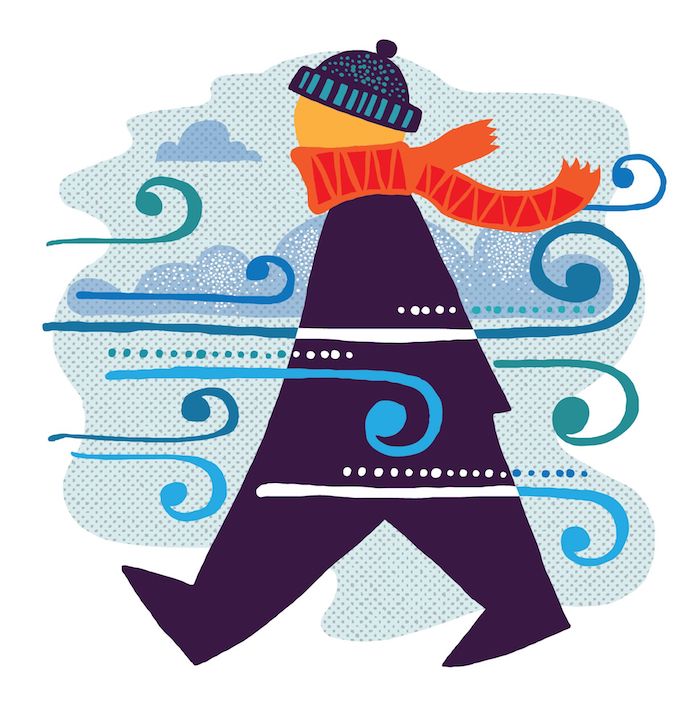
March 3
I am spending a snowy spring break with friends from home, Karen (who also works at Wake Forest, at WFDD) and Glen Kantziper. They have made many Swedish friends over the years, people from Gothenburg who come to Greensboro on assignments at the Volvo headquarters there. The first three days of break, we were hosted by the Annlöv family, whose hospitality rivals the best of the Southern variety I have known and loved all of my life. I learned something important from Lena: “There is no bad weather, only bad clothing.”
March 6
I visited DIS Stockholm this morning and was invited to stay over for lunch. The personal warmth and sense of community I have grown to love at DIS Copenhagen is evident at the newer, smaller branch in Sweden. Over lunch, something came up in conversation that I’ve noticed while here and have discussed quite a bit with my colleagues in Denmark. I realize the risk of reducing Americans to a cultural stereotype, but many if not most of us arrange our lives to make them as easy as possible. We have a profound fear of discomfort. Originally, I thought about this as physical discomfort related to weather and physical activity and taking extra time to prepare healthful food, but I think the observation also applies to ideas and “comfort zones.” The way to grow and become stronger is to embrace and overcome discomfort. In the long run, being stronger and more open gives us resiliency that makes our lives easier, not to mention happier.
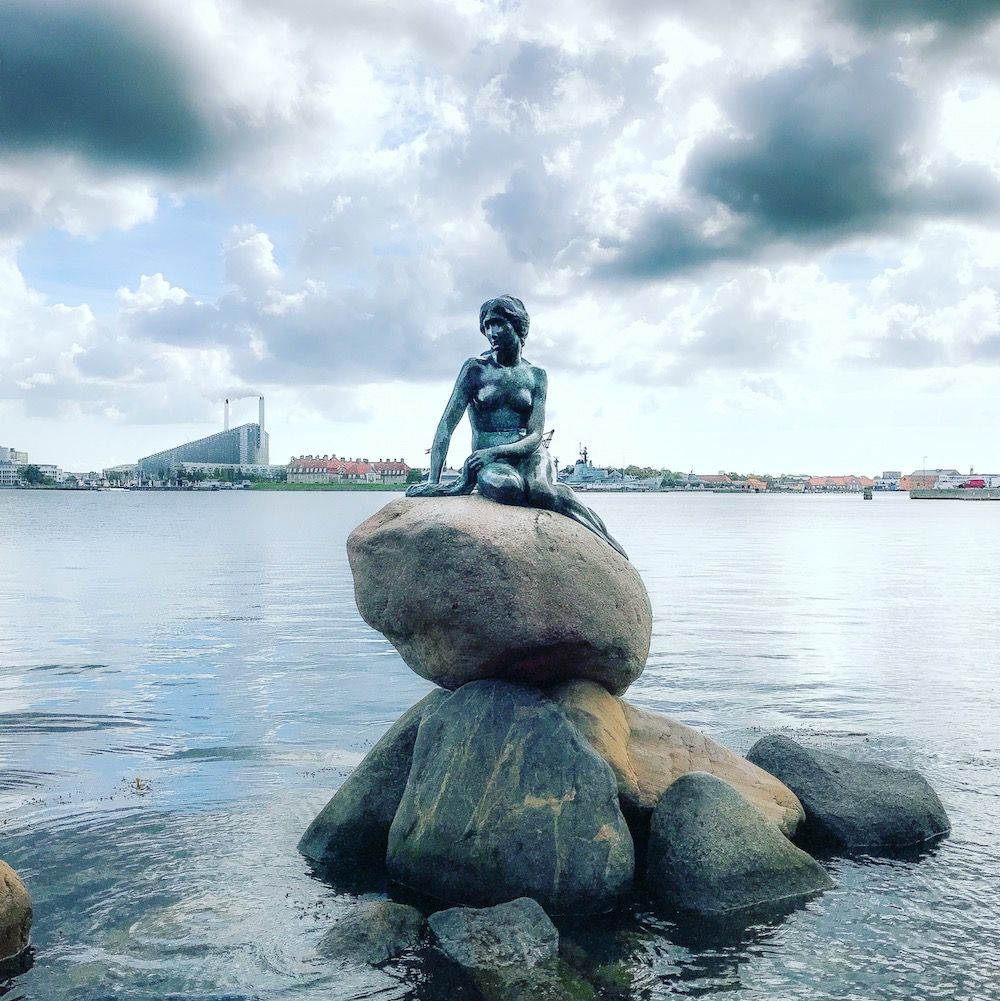
March 17
Yesterday I was homesick. Of course, I’ve missed people and places during the two months I’ve been away and have had fleeting moments of wistfulness, but I think yesterday was the first day I would call the feeling “homesick.” I embraced it. After all, it helps me empathize with students who have these feelings and serves as a marker that I have nice people and locations to return to in May. Even for people with a relatively high equilibrium like mine, my “emotional pulse,” as I am fond of calling it, does not stay consistent. There is a natural ebb and flow to life that is necessary for us to learn and grow. I wouldn’t have it any other way.
March 26
The days are getting longer. When I arrived, I walked to work in darkness and walked home in darkness, even on my “early days.” It’s hard to be here without embracing that brand (and it is now a brand) of coziness known as hygge (hyou-gah). People associate this with candles and nesting and staying home during the winter (note to self: remember there is no bad weather, only bad clothes!). I have enjoyed my candles and quiet times here, but there is more to it than that here in Denmark. Practicing hygge by making things cozy and living coziness as a value is a shared experience, a way of acknowledging to family, friends and colleagues that we are in this together and will survive the darkness, cold and rain, so why not make it as pleasant as we can until the springtime arrives. The shared experience is more important than the candles.
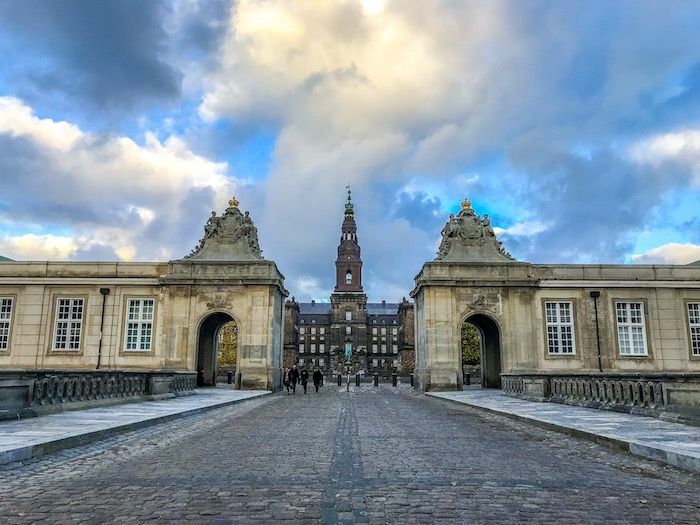
April 1
Over Easter, my best friend from college came to visit. She was Cheryl Miller (’83) in college — and I still call her Cheryl — but adopting her middle name and getting married changed her name to Katie Scarvey for most. Everything closes down here for three days at Easter, not because Denmark is a religious country but because holidays are sacrosanct (and they observe a lot of holidays here). Joel and Helene invited us back to Øster Alling for a few days, which was relaxing — plenty of hygge. Though Joel and Cheryl weren’t friends in school, they quickly connected in the way that Deacons do, and we discussed our biggest regrets about college. We all talked about academics, working harder in classes or getting to know professors outside of class. Joel and I mentioned studying abroad, which was not as common for students then as it is now, while Cheryl reflected on how her semester in Venice was one of her most important college experiences.
April 16
Last week my son, Dalton Smoot, visited me in Copenhagen. When he was 13, we spent a wonderful semester in London at Worrell House, and when he was 17, we spent a summer session in Vienna at Flow House. That summer is very much on my mind this week because I’m with the Global AWAKEnings students on a study tour in Vienna organized by Suzanne da Cunha Bang and Steffen Løvkjær — essentially a vacation for me filled with lectures, important cultural and historical sites, and good food. Suzanne has taught and traveled with the students all year, and we spent a lot of time on this trip discussing how they have grown in eight months. All of them would acknowledge that going abroad for their first year of college was a bold choice involving some sacrifices but that what they have gained far exceeds what they have given up. These students have become independent and mature beyond all expectation. They will walk onto campus as sophomores bringing with them global perspectives we need in the classroom and, perhaps more importantly, in campus life outside of the classroom.

April 25
I have thought many times about why I feel at home here. Part of it has to do with the friends I’ve made, but part is also related to aesthetics and, in particular, the juxtaposition of old and new, which is found in architecture and design and food and in the media texts my students are studying to produce the latest volume of essays to be published in the Critical Media Studies series. I love the contrast of old and new linked here by simplicity, and it reminds me of my own home back in Jamestown, North Carolina, where primitive antiques rest next to the occasional piece of contemporary art.
May 8
I am preparing to go home. Some of the students have already left and all will fly out by the end of the week. We have shared a transforming experience together, and it has been a joy to watch them grow as students, travelers and leaders. I am proud of each one of the Global AWAKEnings students and look forward to following their progress the next three years on the Reynolda Campus. I think the departure is bittersweet for all of us. Though it is time to go home, we are taking a bit of Copenhagen with us — wooden butter spreaders, black clothes, new ideas and indelible memories — and all of us hope to return to this city we have come to love.
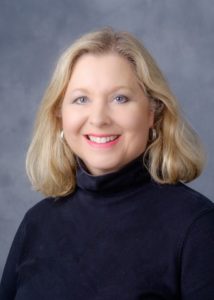 Mary Dalton (’83) is professor of communication and film studies. She is a documentary filmmaker and the author of “The Hollywood Curriculum: Teachers in the Movies” and “Teacher TV: Sixty Years of Teachers on Television.” She co-edited “The Sitcom Reader: America Viewed and Skewed.”
Mary Dalton (’83) is professor of communication and film studies. She is a documentary filmmaker and the author of “The Hollywood Curriculum: Teachers in the Movies” and “Teacher TV: Sixty Years of Teachers on Television.” She co-edited “The Sitcom Reader: America Viewed and Skewed.”
Global AWAKEnings
The Wake Forest Center for Global Programs and Studies launched a partnership with DIS – Study Abroad in Scandinavia to send a group of students to Copenhagen for their first year of college in 2017-18.
The 17 students in the inaugural class came from tiny towns and big cities, from California to South Carolina with Texas represented in between, and their proposed majors range from biology to business and communication to art history.
At first, this new Wake Forest program may seem like a radical idea, but the students who are selected are looking for a different experience from the typical first-year college student’s. They are eager to see the world, and many have identified an international component to their academic and professional interests.
Students must submit an application for the Global AWAKEnings program separate from their application to Wake Forest, and students must first be admitted to the University before they are considered for the program. The application includes two additional essays that address why the applicant wants an international experience during the first year of college.
Each semester, Wake Forest intends to send a resident professor to Copenhagen to teach two classes. The other courses are taught by DIS faculty members in subjects including Danish language and culture, religion, literature, politics and sustainability. I was the resident professor for spring semester.
Unlike residential programs in London, Venice and Vienna, resident professors for Global AWAKEnings do not live with the students, who are housed in a DIS residence hall with the equivalent of RAs, but faculty are deeply involved and travel with students on several study tours each semester.
The DIS teaching philosophy is experiential, and faculty and students have field studies for each course in addition to the study tours. Students engaged in group projects — simulations and debates, and oral presentations — as well as independent assignments, conventional quizzes, exams, essays and research papers.
The students I taught share an intense intellectual curiosity and a broad interest in the world around them. What each will bring back to campus is a global perspective, independence and maturity that will spill over into the classrooms and residence halls they inhabit during their second year of college.
— Mary Dalton (’83)
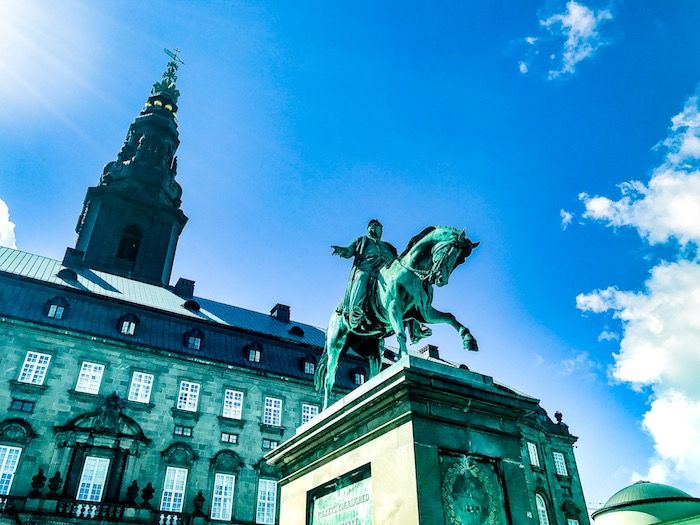
A student photographer’s view
When I heard Wake Forest offered a program for first-year students to study in Denmark, I was thrilled. Having traveled to Denmark when I was little, I was excited at the possibility of living and studying there.
To spend my freshman year abroad has been truly a once-in-a-lifetime experience. Copenhagen is safe and easy to get around. Danes are super nice. Although Danish can be difficult to pick up, most Danes speak English, so there’s a minimal language barrier.
And, of course, there’s the benefit of weekend travel. During my time abroad, I traveled to more than 20 countries. It was incredible not only to experience different cultures, but also to expand my photography skills everywhere I went.
Growing up in Englewood, Florida, a beachside town on the Gulf of Mexico, I have always had a certain fascination with nature. Whether it was boating in the Gulf, fishing or kayaking down the Crystal River and seeing manatees slowly swim by, I have found that being in nature has played a key role in my life. It’s part of the reason I took up photography a year and a half ago. When I look over the pictures I’ve taken, I see a new beauty in nature that I didn’t see before.
Most valuable for me in Copenhagen has been the life experience I gained. Global AWAKEnings forces you to mature in a way that the typical freshman experience doesn’t. You have to buy groceries for yourself, cook your own meals and navigate the busy streets to get to and from school, all while adapting to a new culture.
But because of that, you gain a new perspective of — and appreciation for — the world around you. While some people may think studying abroad for a year as a freshman sounds daunting, the rewards of embarking on this adventure are numerous and I believe will extend beyond college.
— Grant Alexander (’21)
